Hey there, fellow dog lover! I’m Dr. Candy, your holistic veterinarian, and today we’re going to talk about something that’s often overlooked but incredibly important – Shih Tzu Dental Health. You see, our furry friends can’t tell us when they have a toothache or gum discomfort, and that’s why it’s crucial for us to be vigilant about their oral health.
Did you know that dental health is deeply connected to overall health in dogs, especially in Shih Tzus? Yes, it’s true! Issues like tooth decay or gum disease can lead to serious health problems if left untreated. So, it’s not just about keeping their breath fresh and teeth sparkling, it’s about ensuring they live a long, healthy, and happy life.
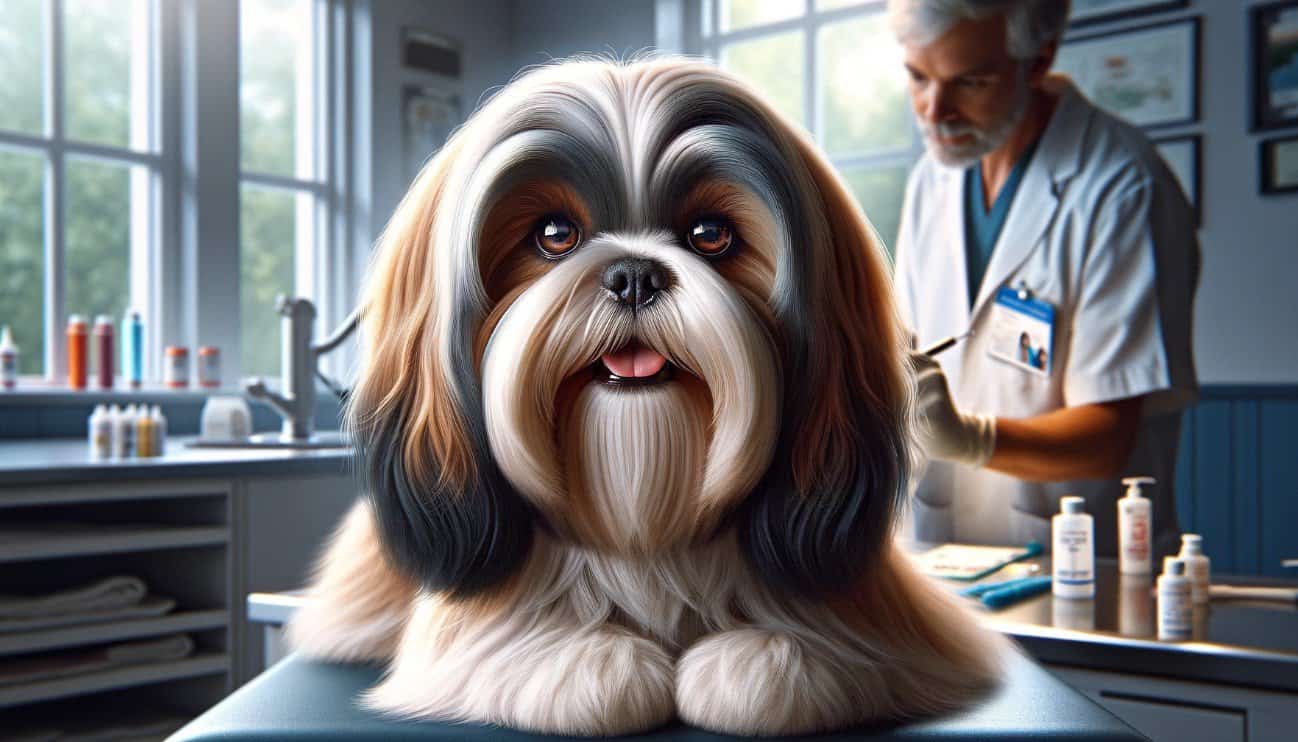
Whether you’re dealing with Shih Tzu teeth cleaning, looking for the right dental care products, or trying to understand common dental issues in this breed, I’ve got you covered. Let’s explore Shih Tzu oral health together!
Signs of Dental Disease in Shih Tzu
As a holistic veterinarian, I’ve noticed that many Shih Tzu parents may not be aware of the signs of dental disease in their furry friends. Understanding these signs is crucial to maintaining your Shih Tzu’s dental health and overall well-being. Let’s delve into the nitty-gritty of what you need to look out for.
Firstly, bad breath is a common sign of dental disease in Shih Tzus. If your pup’s breath has a foul smell that persists, it could be a sign of underlying dental issues. Many dog parents mistakenly assume that bad breath is normal for dogs, but it’s not, especially if it’s persistent and pungent.
Another sign is a change in eating habits. If your Shih Tzu is usually a hearty eater but suddenly starts to lose interest in food or has difficulty eating, it may be due to dental pain. They may also paw at their mouth or face, which can be a sign of discomfort.
Discolored teeth or gums are also indicators of potential dental disease. Healthy teeth should be white, and gums should be pink. Any change in color, such as yellow or brown teeth, or red and swollen gums, warrants a visit to the vet.
Lastly, excessive drooling or changes in the amount or color of drool can signal dental problems. While some dogs naturally drool more than others, any sudden increase, or if the drool is tinged with blood, should be a cause for concern.
Remember, early detection can prevent more serious dental issues down the line. Regular check-ups with your trusted vet are essential. And, of course, good dental hygiene at home plays a crucial role in Shih Tzu dental health.
By keeping an eye out for these signs, you’re taking a proactive role in your Shih Tzu’s health. Your furry friend may not be able to tell you they’re in pain, but they can show you. It’s up to us as responsible and loving pet parents to pay attention and take action.

Common Dental Health Issues In Shih Tzu
As a veterinarian, I’ve treated numerous Shih Tzus and I’ve seen that they are prone to certain dental health issues. It’s important to be aware of these to ensure your pet’s oral health is in top shape.
Periodontal Disease: This is one of the most common Shih Tzu dental health problems. It starts with plaque build-up on the teeth, which hardens into tartar. If left untreated, it can lead to gum disease and tooth loss.
Retained Baby Teeth: Shih Tzus often have issues with baby teeth that don’t fall out as they should. This can lead to overcrowding and alignment issues, causing food to get trapped and thus increasing the risk of periodontal disease.
Tooth Decay: Just like in humans, Shih Tzus can suffer from tooth decay if their dental health is not properly maintained. This can lead to pain, difficulty eating, and in severe cases, can affect the dog’s overall health.
These issues can be prevented with regular teeth cleaning and dental check-ups. Here’s a quick overview of what you can do:
- Regular Brushing: Brush your Shih Tzu’s teeth at least two to three times a week.
- Dental Check-ups: Regular veterinary check-ups will help catch any potential issues early.
- Healthy Diet: Feed your dog a balanced diet and avoid giving them sugary treats.
Remember, maintaining your Shih Tzu’s dental health is a key part of ensuring their overall well-being.

Conventional Dental Health Treatments for Shih Tzu
As a pet parent, it’s crucial to be aware of the conventional dental health treatments available for your Shih Tzu. These treatments are often the first line of defense in tackling dental health issues and ensuring your furry friend’s mouth remains healthy.
Anesthetic Dental Cleanings
One of the most common treatments is anesthetic dental cleanings. These cleanings are performed by a veterinarian and involve your Shih Tzu being put under anesthesia. This allows the vet to thoroughly clean your dog’s teeth and gums, removing plaque and tartar build-up that can lead to dental disease.
While this might sound a bit daunting, it’s a routine procedure and is generally safe for most dogs. Anesthetic dental cleanings can be incredibly effective at preventing and treating dental issues, keeping your Shih Tzu’s teeth clean, and their breath fresh.
Potential Individual Health Obstacles
However, it’s important to note that while anesthetic dental cleanings are generally safe, they may not be suitable for all Shih Tzus. Certain health obstacles could potentially make this treatment risky for your pet.
- Heart Problems: Shih Tzus with heart conditions may be at increased risk during procedures involving anesthesia. Always consult with your vet if your pet has any known heart problems.
- Drug Sensitivities: Some Shih Tzus may have sensitivities to certain anesthetics or medications used during dental cleanings.
- Seizures: Dogs with a history of seizures may be at a higher risk of complications during procedures involving anesthesia.
- Extreme Age: Older Shih Tzus may face additional risks with anesthesia, particularly if they have other health issues.
If your Shih Tzu falls into any of these categories, don’t worry. There are other options available to maintain their dental health. Always discuss your pet’s individual health circumstances with your vet to find the best treatment option.
Remember, maintaining your Shih Tzu dental health is a crucial part of their overall well-being. Regular dental check-ups, coupled with good home care, can keep your pet’s teeth clean and disease-free, contributing to a happier, healthier life.
When it comes to Shih Tzu dental health, the holistic approach of Dr. Candy offers a refreshing perspective that prioritizes the overall well-being of your furry friend. This method emphasizes the importance of diet and oral health specific probiotics for maintaining your Shih Tzu’s dental health.
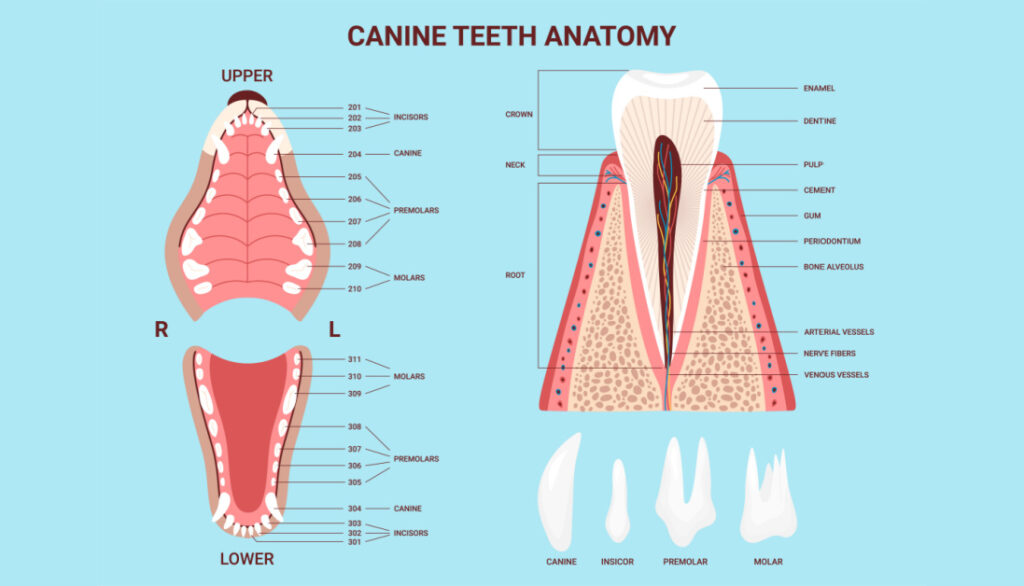
Diet: Low Carbs, Avoid Added Sugars, Enzymes In Fresh Food
The first key aspect of Dr. Candy’s holistic approach is diet. What your Shih Tzu eats can greatly impact their oral health. A diet low in carbohydrates is recommended as high-carb foods can lead to plaque buildup, which can result in dental issues such as tooth decay and gum disease.
Avoiding added sugars is also crucial. Sugars can encourage the growth of harmful bacteria in your Shih Tzu’s mouth, leading to bad breath, tooth decay, and other dental problems.
Finally, incorporating enzymes in fresh food into your Shih Tzu’s diet can be beneficial. Enzymes, which are found in fresh fruits and vegetables, can help break down food particles and reduce plaque. Some enzyme-rich foods you can add to your Shih Tzu’s diet include apples, carrots, and celery.
Oral Health Specific Probiotics
The second part of Dr. Candy’s holistic approach involves the use of oral health specific probiotics. Probiotics are beneficial bacteria that can help balance the microflora in your Shih Tzu’s mouth, preventing the growth of harmful bacteria and promoting good oral health.
One product that Dr. Candy highly recommends is Probiora for Dogs. This oral health targeted probiotic is specially formulated to support the dental health of dogs. It helps to maintain a healthy balance of bacteria in the mouth, reducing the risk of dental diseases. Simply sprinkle it on your Shih Tzu’s food once a day to support their oral health.
In conclusion, maintaining your Shih Tzu’s dental health doesn’t have to be a daunting task. By adopting Dr. Candy’s holistic approach, which includes a healthy diet and the use of oral health specific probiotics, you can help ensure your Shih Tzu’s teeth and gums stay healthy and strong.
Remember, a healthy mouth is an important part of your Shih Tzu’s overall well-being. So, take the time to care for their teeth and gums just as you would any other part of their body.

Recommended Dental Chews & Products For Shih Tzu
It’s important to understand that not all dental chews on the market are beneficial for your Shih Tzu’s dental health. Many commercially promoted dental chews are packed with artificial ingredients, additives, and sugars that can lead to tooth decay and gum disease. Despite the catchy marketing, these products often fail to effectively clean your dog’s teeth and can cause more harm than good.
Moreover, some pet parents consider using drinking water additives to improve their dog’s oral health. While these products may seem convenient, they can harm the beneficial bacteria in your dog’s gut, leading to digestive issues. It’s crucial to opt for natural and safe alternatives to maintain your Shih Tzu’s dental health.
Dr. Candy’s Recommended Dental Chews & Products
Dr. Candy’s approach to Shih Tzu dental health emphasizes the use of natural, single-source protein products. These dental chews are not only delicious for your furry friend but also effectively clean their teeth and gums. Here are some top recommendations:
Tendons
Tendons are a fantastic natural chew for your Shih Tzu. They are tough and fibrous, which helps to scrape off plaque and tartar from your dog’s teeth. Plus, they are a good source of protein and collagen, promoting good joint health.
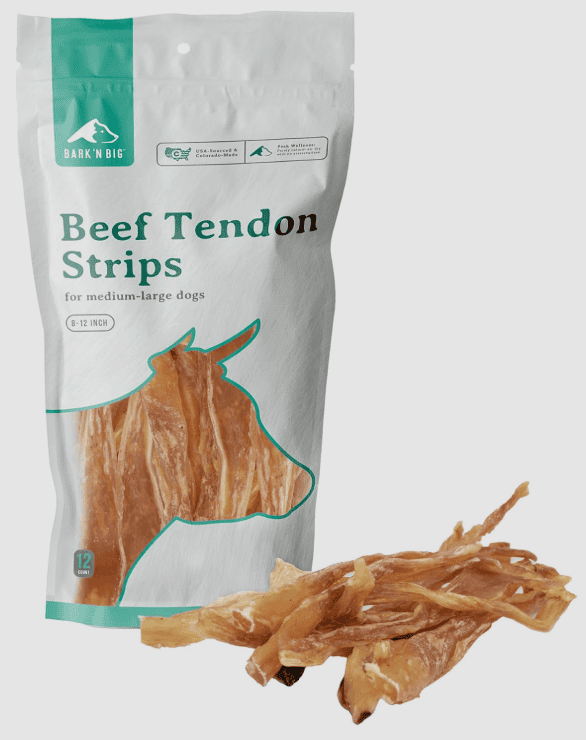
Raw Marrow Bones
Raw marrow bones are another excellent choice for maintaining your Shih Tzu’s dental health. They are a natural source of calcium and phosphorus, which are essential for healthy teeth and bones. Furthermore, the act of gnawing on bones can help to clean your dog’s teeth and gums.
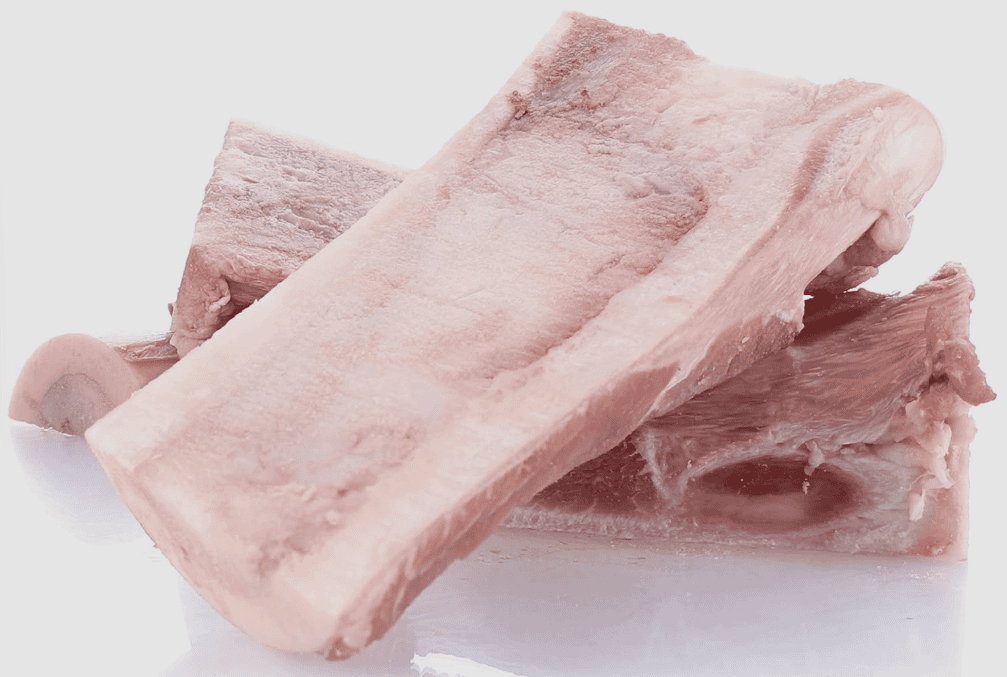
Bully Sticks
Bully sticks are made from 100% beef muscle, providing a natural and digestible chew for your Shih Tzu. They can effectively remove plaque and tartar and are a good source of protein. However, always supervise your dog while they’re chewing on a bully stick to prevent any choking hazard.
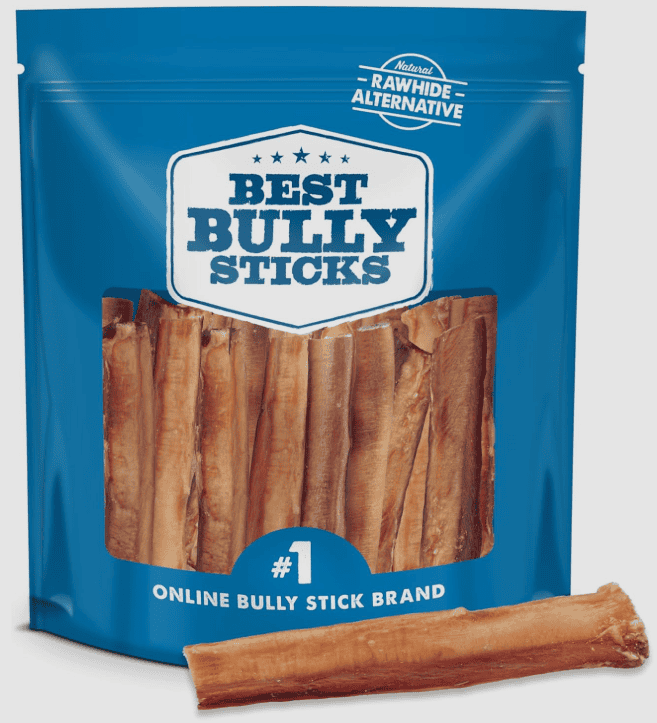
Remember, while these chews can significantly help to maintain your Shih Tzu’s oral health, they are not a substitute for regular tooth brushing and professional dental cleanings. It’s essential to establish a comprehensive dental care routine to keep your Shih Tzu’s teeth and gums healthy.
Always supervise your dog while they are enjoying their chew to prevent any choking hazards. Also, it’s a good idea to consult with your vet before introducing any new products into your dog’s diet.
Your Shih Tzu’s dental health is paramount. By choosing the right products and maintaining a regular dental care routine, you can ensure your furry friend’s teeth stay healthy and their breath stays fresh.
Frequently Asked Questions
1. How often should I brush my Shih Tzu’s teeth?
It is recommended to brush your Shih Tzu’s teeth at least 2-3 times a week to maintain good oral hygiene and keep their breath fresh. Regular brushing helps prevent plaque buildup and reduces the risk of dental diseases.
2. Can I use human toothpaste to brush my Shih Tzu’s teeth?
No, you should never use human toothpaste on your Shih Tzu’s teeth. Human toothpaste contains ingredients that are toxic to dogs if swallowed. Instead, use a toothpaste specifically formulated for dogs, which is safe for them to ingest.
3. How can I prevent bad breath in my Shih Tzu?
Bad breath in Shih Tzus can be prevented by maintaining good oral hygiene. Besides regular brushing, you can provide dental chews or toys that help clean their teeth. Additionally, feeding them a balanced diet and scheduling regular dental check-ups with your veterinarian can also help prevent bad breath.
4. Are there any specific dental treats or toys recommended for Shih Tzus?
Yes, there are dental treats and toys specifically designed to promote oral health in dogs, including Shih Tzus. Look for products that are approved by veterinary dental associations and are appropriate for your dog’s size. Always supervise your dog while they chew on toys or treats to prevent choking hazards.
5. What signs should I look for to detect dental problems in my Shih Tzu?
Some common signs of dental problems in Shih Tzus include bad breath, swollen or bleeding gums, yellow or brown tartar buildup, loose or missing teeth, difficulty eating, and excessive drooling. If you notice any of these signs, it is important to consult your veterinarian for a dental examination and appropriate treatment.
